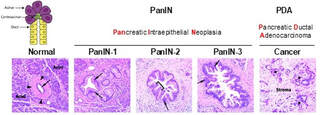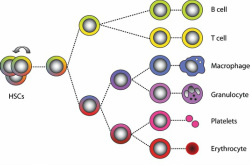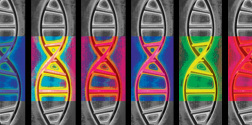
Epigenetic progression model of pancreatic cancer
We seek to define the core epigenetic programs that co-operate with genetic alterations to drive pancreatic cancer initiation and maintenance.
We seek to define the core epigenetic programs that co-operate with genetic alterations to drive pancreatic cancer initiation and maintenance.

Andricovich et. al. Loss of KDM6A activates super-enhancers to induce gender-specific squamous-like pancreatic cancer and confers sensitivity to BET inhibitors.
Cancer Cell. March 2018
Cancer Cell. March 2018

Perkail et al. BAP1 is a haploinsufficient tumor suppressor linking chronic pancreatitis to pancreatic cancer in mice.
Nature Communications. June 2020
Nature Communications. June 2020

Epigenetic regulation of normal and malignant hematopoiesis
We use genetically engineered mouse models to study the role of histone demethylases in normal and malignant hematopoiesis.
We use genetically engineered mouse models to study the role of histone demethylases in normal and malignant hematopoiesis.

Andricovich et. al. Histone demethylase KDM2B regulates lineage commitment in normal and malignant hematopoiesis.
J Clin Invest. March 2016
J Clin Invest. March 2016

Cross-talk of signaling pathways and the epigenetic machinery
We are interested in uncovering the signaling pathways that regulate the activity and targeting of histone demethylases.
We are interested in uncovering the signaling pathways that regulate the activity and targeting of histone demethylases.

Gene discovery
We use Sleeping Beauty transposon mediated mutagenesis for unbiased, forward genetic screens to discover genes that co-operate with histone modifying enzymes to drive oncogenesis in vivo.
We use Sleeping Beauty transposon mediated mutagenesis for unbiased, forward genetic screens to discover genes that co-operate with histone modifying enzymes to drive oncogenesis in vivo.